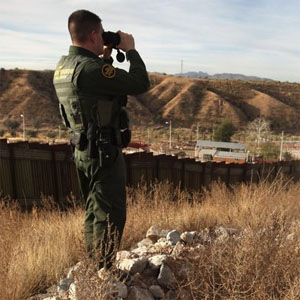I spent the five happiest years of my life in a morgue. As a forensic scientist in the Cleveland coroner’s office I analyzed gunshot residue on hands and clothing, hairs, fibers, paint, glass, DNA, blood and many other forms of trace evidence, as well as crime scenes. Now I'm a certified latent print examiner and CSI for a police department in Florida. I also write a series of forensic suspense novels, turning the day job into fiction. My books have been translated into six languages.
I am an expert in some areas of forensic science. I am not an expert in law, public safety policy or our political system.
I”ve heard that rumor too, but I don’t see how it could possibly be true. Cause of death is decided by a myriad of different doctors. Generally it is signed by the doctor who was caring for the patient regarding the condition that led (or at least appeared to lead) to the death. If that is not clear, if the person wasn’t consistently under a doctor’s care or if, say, a cancer patient suffers a traumatic car accident, then cause could be determined by a different doctor. That could be a pathologist at the Medical Examiner’s Office, a cancer patient’s oncologist, an ill person’s regularly-visited doctor, the doctor on staff at a nursing home, a hospital doctor who’s been caring for the patient during a temporary stay, or even an emergency room doctor. In the past few months I’ve been called to a number of deaths and none of them were ruled as COVID cases.
Not that I know of.
No. That’s the actress Lisa Hartman Black.
Birthday Party Clown
 What's the meanest thing a kid ever said to you during a party?
What's the meanest thing a kid ever said to you during a party?
Border Patrol Agent
 Do you ever feel sorry for the illegals you catch trying to cross the border?
Do you ever feel sorry for the illegals you catch trying to cross the border?
Hollywood Executive Assistant
 Does your boss ever have you lie on his behalf?
Does your boss ever have you lie on his behalf?
If you’re looking at behavioral psychology, I’m afraid I have no idea what job requirements would be. Try to find the websites of professional organizations, like American Academy of Forensic Sciences, and check their job vacancy postings for job requirements. I’m sure there must be national organizations of behavioral psychology as well, and they should be able to guide you. Best of luck to you.
With all bullets a great deal depends on how much gunpowder is used--the charges can be underpowered or highly powered. But I asked my boss, a history major, and he says absolutely that one at close range entering the eye could go all the way through the head. Hope that helps!
I don’t know anything more than you do.
-OR-
 Login with Facebook
Login with Facebook (max 20 characters - letters, numbers, and underscores only. Note that your username is private, and you have the option to choose an alias when asking questions or hosting a Q&A.)
(A valid e-mail address is required. Your e-mail will not be shared with anyone.)
(min 5 characters)
By checking this box, you acknowledge that you have read and agree to Jobstr.com’s Terms and Privacy Policy.
-OR-
 Register with Facebook
Register with Facebook(Don't worry: you'll be able to choose an alias when asking questions or hosting a Q&A.)